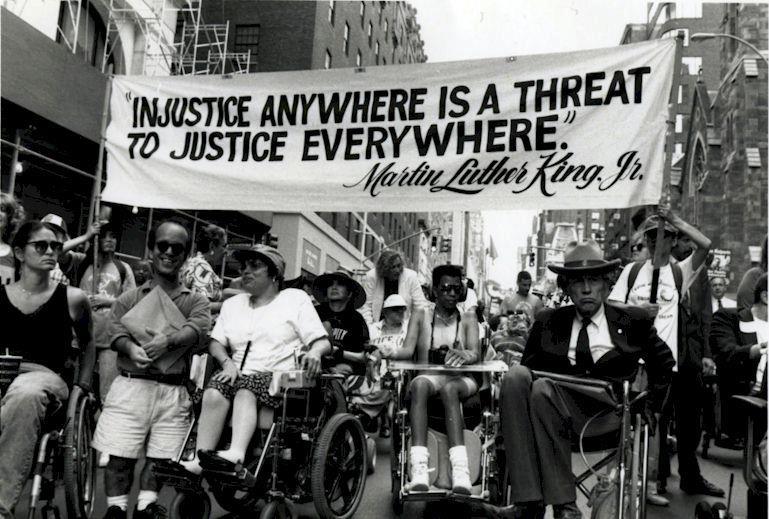Who is more disabled? The successful banker who happens to be quadriplegic, and gets up each weekday (with the help of assistants) and goes to work, contributing to the community and pulling down over $100,000 a year? Or the dude who still lives in his mom’s basement, who can do chin-ups, run and jump, but is unwilling or unable to contribute to society? Who is more disabled?
Traditionally, society would tell you the banker is disabled. Dumb society. Clearly, he’s not as disabled as the basement guy! If we measure ability according to contribution, the banker is way ahead. But society usually measures things based on appearance, and the banker looks “dependent,” “confined to a wheelchair” and “trapped” to most people.
Does this mean disability is a purely social construct? And we should all go write disability studies papers about how disability is a false construct used by a pervasively ablist society to oppress those who are different? Not so fast.
It all depends on supports. If your caregivers are responsive and willing and able to support all your needs, your disability becomes a minor, almost social/cultural difference, like hair color or left-handedness. You can contribute in your own way, as everyone else can. But if you don’t have good supports, that same person may end up with repeated illness, lying helplessly on their back, unable to contribute. The banker who made $100,000 will make $0 and live in a dim nursing home without the support of his assistants. Suddenly, he is MUCH MORE disabled than the basement guy (who at least always has choices). Suddenly, it’s not a social/cultural difference the banker has the luxury to debate; he is watching his peers contribute and benefit in society while he’s unable to leave his room regardless of his wishes, and the cultural assumptions of his inability have become true, a prophecy fulfilled by the system’s outdated model. He’s suddenly very different, and it’s not cultural at all. It’s a real, physical difference, and a huge barrier.
Unless we have reliable access to proper personal attendants and supports in the community, unless we pass the Community Choice Act and offer REAL choices of community living vs. living in a hopeless institution’s back ward, then debating “disability as a social construct” will be the luxury of academics, while those with severe disabilities hope the nurse will let them turn on their side today. Until we have the help we need, our problems will be very real and physical, with the invisible cultural barriers several rungs up the ladder, something we HOPE we can confront once we climb up.
And once more and more of us with severe disabilities are living independently and publicly seen doing so, the appearances, and thus the societal perceptions, will shift, and the assumptions that we are helpless, can’t contribute and need to be in institutions will dissipate. We can begin to reverse that vicious cycle if both appearances and the realities of what we’re contributing change.
Now we have to get the needed services and supports to change the lives of people with disabilities. And that’s what the Community Choice Act is about.
The Community Choice Act is being reintroduced in Congress THIS TUESDAY, the 24th. Read more now.
Nick
